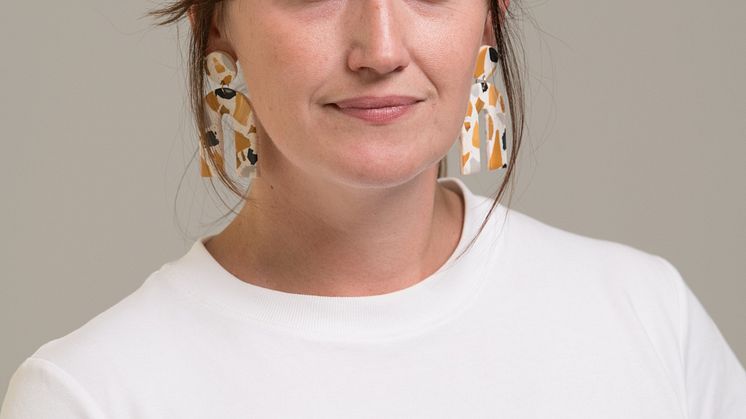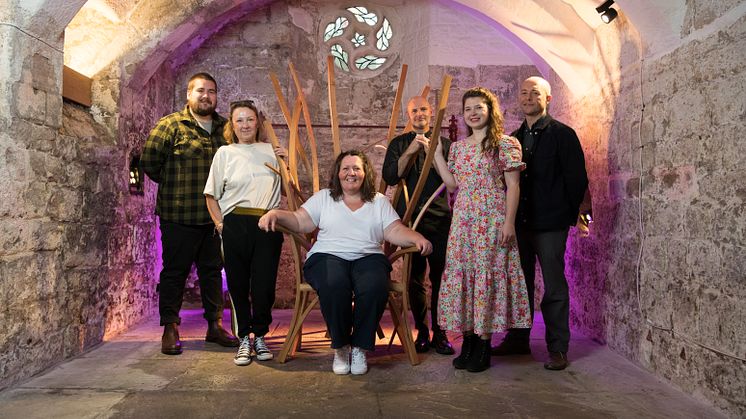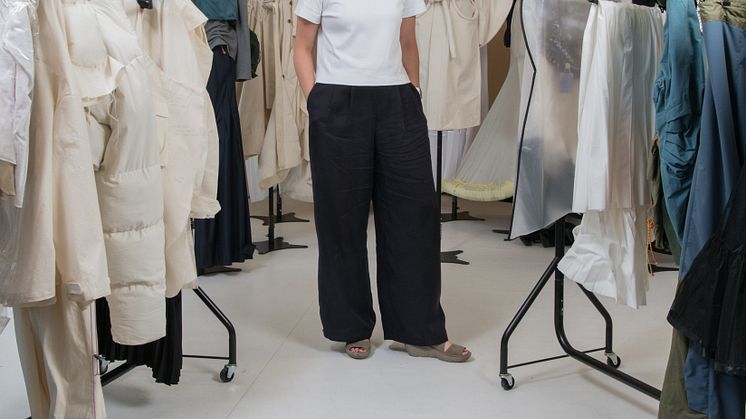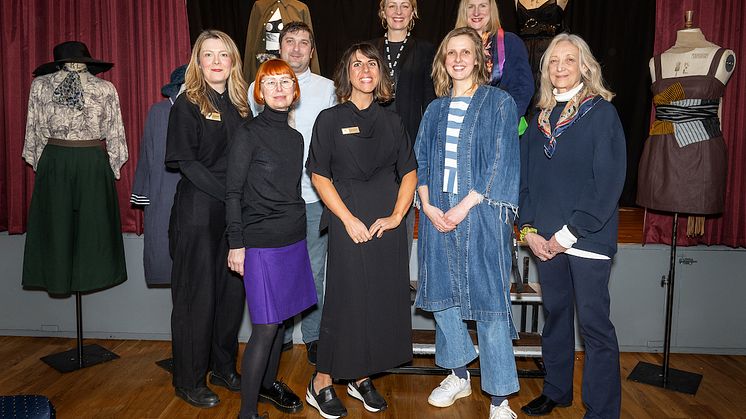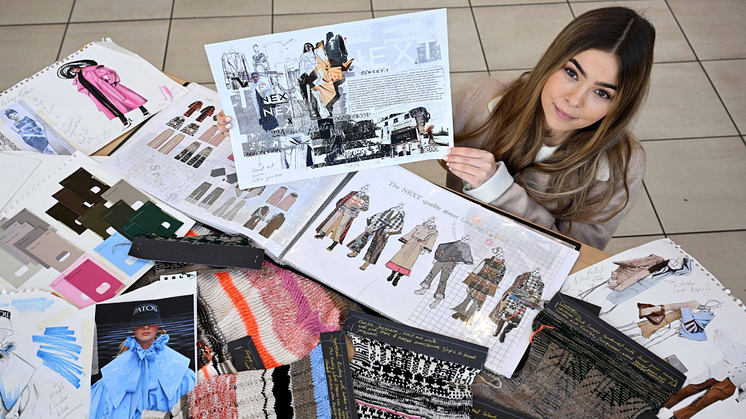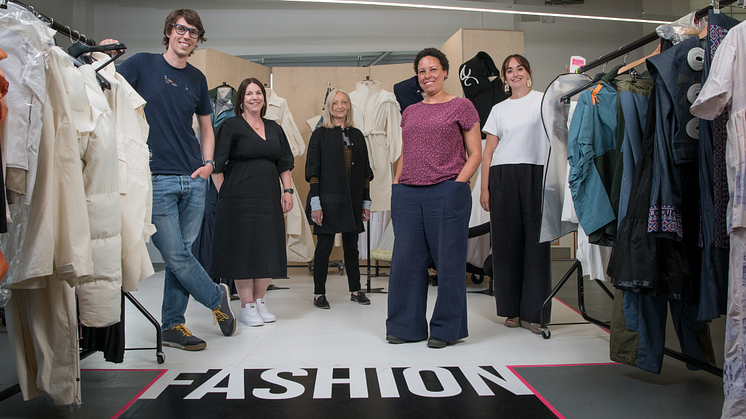
Press release -
Environmental impact of fashion industry under scrutiny
It is often described as fashion’s dirty secret, and in recent years there has been increasing recognition of the global environmental impact of the textile industry – however, the true scale of the problem is still not fully understood.
The lack of a collective approach to measuring and assessing the sustainability of the fashion industry means many consumers are still unaware of the impact the clothes they buy have on the health of our planet.
Now a major project, led by Northumbria University, will address the issue by bringing together a network of academic experts, manufacturers, major fashion brands and consumers to examine how the environmental impact across the fashion and textiles industry is measured and assessed.
The project has been awarded almost £2m of funding through a joint programme between the Arts and Humanities Research Council (AHRC), Natural Environment Research Council (NERC), and the UK’s national innovation agency Innovate UK.
The aim of the programme is to fulfil UK Research and Innovation’s (UKRI) ambition to transform the circular fashion and textiles sector. A core component of this mission is to fund Networks that bring together different communities to identify, prioritise and develop emerging research and knowledge exchange challenges.
The project will be led by Dr Alana James of Northumbria University, whose research focuses on creating sustainable change in the future of the fashion industry. She will work alongside colleagues from Northumbria, as well as King’s College London and Loughborough University, covering a variety of expertise, including water, air and soil pollution, forensic science, design, and big data.
They will be joined by representatives from global fashion brands including Barbour, Montane, and ASOS; sustainable clothing companies Agogic and This is Unfolded; campaign groups Fashion Revolution and WRAP; and the Northern Clothing and Textile Network, Newcastle City Council and Newcastle Gateshead Initiative.
Over the next two years the group will work together to gain a better understanding of how the environmental impact of fashion garments is currently measured, sharing their expertise to get a true picture of the scale of the problem.
Speaking about the aims of the project, Dr Alana James said: “There are many issues with the current process for assessing environmental impact within the fashion industry. For a start, it relies very much on the self-reporting of data and is operated on an opt-in basis rather than as a mandatory requirement.
“The complexity of the global supply chain means that tracing a product from start to finish is challenging and results in a lot of average measurements being used when reporting. We really need to dig deeper to discover the true impact.
“We also need to start thinking beyond the carbon footprint of a garment and look at factors such as how microfibres from clothes are shed and the impact this has on the health of our oceans, rivers, soil and air quality.
“By bringing together both academic and industry experts we hope to combine our knowledge to establish a meaningful network and a lasting legacy which will lead to changes in how the fashion industry measures its impact on the environment.
“This will lead to much greater transparency, allowing consumers to make more informed decisions about where they spend their money.”
The fashion and textile industry is estimated to be worth £21 billion to the UK economy, and provides more than half a million jobs. But globally, the sector causes 8 per cent of global greenhouse gas emissions and 20 per cent of wastewater. Fashion uses more energy than both aviation and shipping combined. The complexity and reach of the industry means true impact on the environment is not fully understood.
The project, entitled IMPACT+: Environmental Index Measures Promoting Assessment and Circular Transparency in Fashion, is one of just three to be funded through UKRI’s circular fashion and textile programme: NetworkPlus.
Together, the three funded Networks mark the start of UKRI’s 10-year vision to transform the fashion and textiles sector, with a focus on future growth and innovation, with the aim of achieving net zero targets before 2050.
Working alongside Dr Alana James are Northumbria academics Dr Kelly Sheridan, a forensic scientist and expert in the transfer of microfibres from clothing; Dr Miranda Prendergast-Miller, an environmental geographer specialising in soil ecology; Professor Anne Peirson-Smith, Head of Fashion and expert in sustainable fashion and youth style; and Professor of Air Quality Management Anil Namdeo, whose research covers the monitoring, modelling and management aspects of air quality.
They are joined by Dr Tom Stanton of Loughborough University, who researchers the impact of clothing fibres on freshwater environments; and Dr Matteo Gallidabino, a Lecturer in Forensic Chemistry at King’s College London, who also specialises in the transfer and impact of microfibres from clothing.
Speaking about Northumbria University’s role in the project, Professor Louise Bracken, Pro Vice-Chancellor (Research and Knowledge Exchange), said: “At Northumbria we believe that addressing global challenges requires collaboration across multiple disciplines and perspectives, something we have been developing through our interdisciplinary research groups.
“This project is a perfect example of how bringing together partners with a wide variety of backgrounds and expertise, both from academia and within industry, can pave the way for real change.
“Congratulations to Dr James and the whole team. There is no doubt that changes need to take place with the fashion and textile industry and this new network will have a lasting impact on the future sustainability of the industry.”
- Ends -
Photo captions:
- Photo 1: Dr Alana James, of Northumbria University.
- Photo 2: Pictured from l-r are some of the project team – Dr Tom Stanton, of Loughborough University; and Dr Kelly Sheridan, Professor Anne Peirson-Smith, Dr Miranda Prendergast-Miller, and Dr Alana James of Northumbria University
- Photo 3: Dr Alana James, of Northumbria University.
Topics
Categories
UNIVERSITY OF THE YEAR 2022 (Times Higher Education Awards)
Northumbria is a research-intensive university that unlocks potential for all, changing lives regionally, nationally and internationally. Find out more about us at www.northumbria.ac.uk
--- Please contact media.communications@northumbria.ac.uk with any media enquiries or interview requests ---










